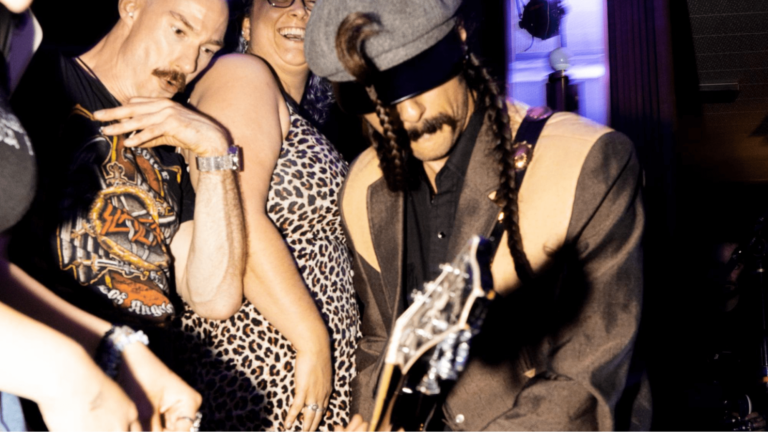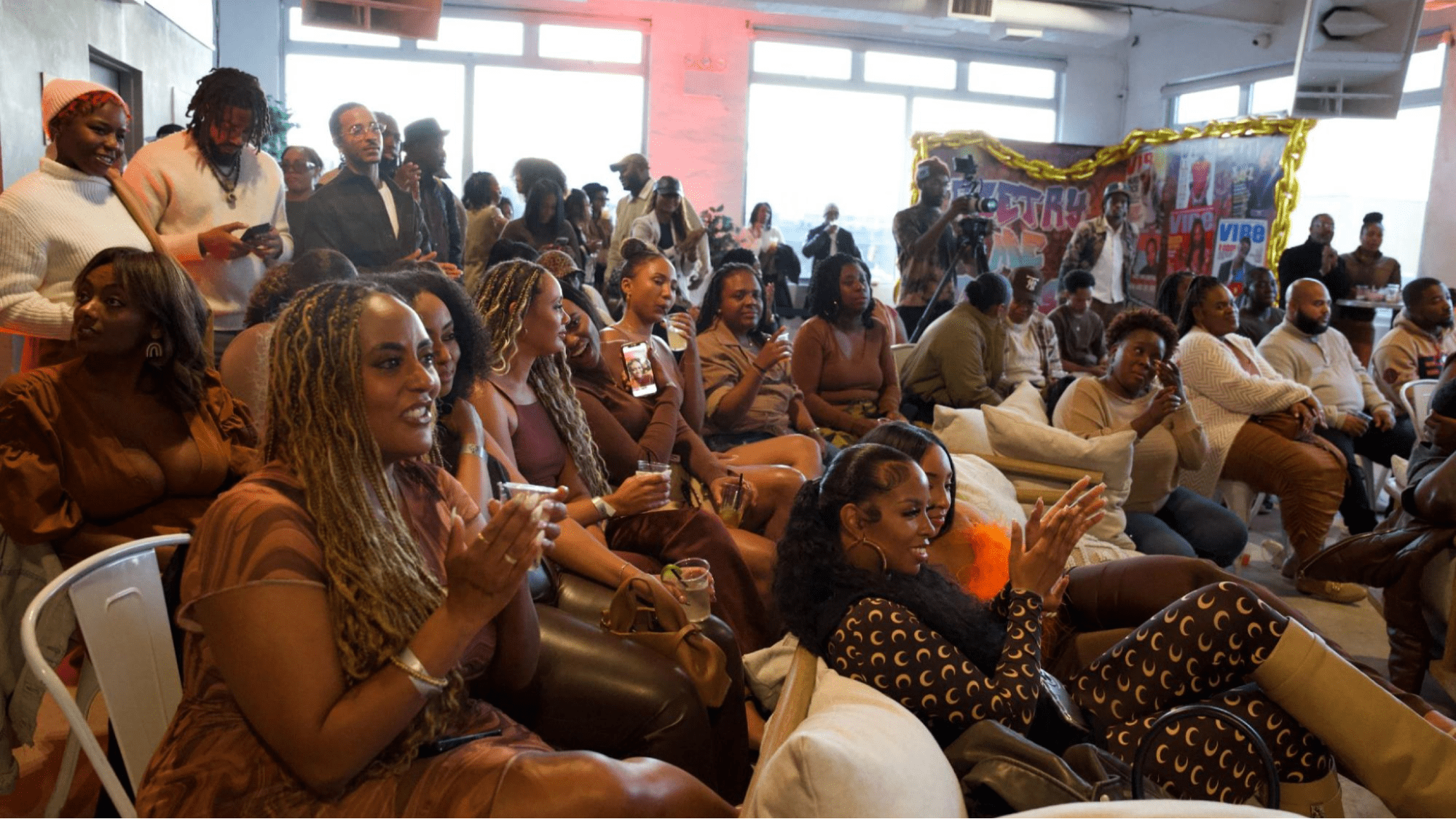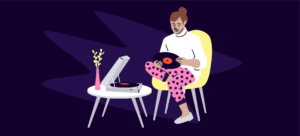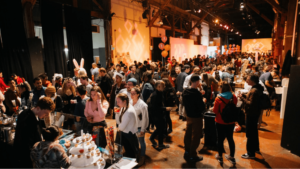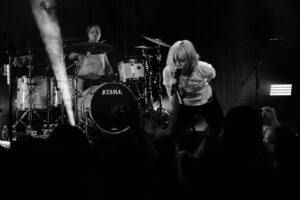The music biz can be fulfilling — but it’s also a tough industry to succeed in. With an estimated 11 million artists on Spotify in 2024 and thousands of independent promoters, competition is fierce. How do you stand out?
Learning how to promote your music effectively is key.
Thousands of successful event organizers, music promoters, and musicians have promoted live events for their target audience using the Eventbrite platform. We’ve learned a lot from them — and this guide will help you market your music independently and build your brand.
Ways to promote your music
2. Create a website and social media profiles
3. Make music videos and social reels
4. Utilize streaming services to gain new fans
6. Create an electronic press kit (EPK)

How to promote your music as a music promoter or artist
From the big picture to specific tactics, let’s explore the most effective ways to showcase your music to a broader audience, starting with the power of live events.
1. Host frequent live events
Hosting live events can help you build community and strengthen your brand.
You can host frequent but small live shows in local bars, restaurants, performing arts centers, or even in the great outdoors. Think outside the box to attract a unique crowd, like IN A LANDSCAPE does with their innovative classical music concerts in stunning outdoor locations across America. This nonprofit creator uses Eventbrite to plan, schedule, and promote live events. You can also browse Eventbrite to get event ideas from other creators in your area.
Create a recurring event series — for instance, a biweekly concert on Thursday evenings — to help strengthen your brand awareness and start forming a community of dedicated fans. Other event promotion ideas, such as using precise audience targeting or throwing smaller events to create an air of exclusivity, can help create a better turnout.
Sell more tickets to your next show

2. Create a website and polish social media profiles
Your online presence is also a powerful tool for promotion. Social media is crucial to build and retain an audience. While some music businesses promote primarily on social media, having a website can give your company a more legitimate, polished look.
Fortunately, creating a modern, mobile-friendly website is easier than ever. Tools like Squarespace, Wix, and Hostinger offer drag-and-drop website builders. Many tools even offer AI functionality, which can mock up a basic website in minutes based on a simple prompt like ‘Design a three-page website for my music promotion business focusing on rising indie musicians.’
With Eventbrite, you can easily create an Organizer page and use our AI assistant to help you fill in the blanks. It’s totally free, and a great way to showcase your past and future events. Once you sign up, you can access all the event-organizer-specific tools we’ve created for event ticketing, event promotion, payments, and more.
For artists, your website can be as simple as a bio, links to streaming, and links to your social media. Take Ghost Feet’s simple website as an example — it’s clean, mobile-friendly, and covers the important information clearly. For promoters, having a more robust press resources page is a key addition.
3. Make music videos and social reels
Multimedia is crucial for promoters. For artists, making full-length music videos and posting them on YouTube can help expose their work to new audiences. Plus, it’s easy to clip segments from music videos to use as social reels and Instagram stories.
For promoters, capturing video at your events can give you a lot of promotional material to work with in the future. Try to capture the experience that attendees are having at your event — not just the music itself.
To avoid any legal issues, it’s a good idea to have a standard filming rights waiver signed by your attendees (or included in your terms of service when you sell tickets.)
4. Utilize streaming services to gain new fans
Major streaming platforms like Spotify and Apple Music should be viewed as promotional channels. Most artists won’t make substantial revenue from streaming — but these services can be important for attracting new fans and promoting events.
The key here is to then convert those fans into paying customers. Utilizing the Spotify Live Events feed, for instance, can help boost awareness of upcoming shows to people who are already following your music. Apple Music for Artists also has various tools to help you learn how to promote your music, both on and off the platform.
If you have an upcoming album or single release, you can also pitch your new music to Spotify’s editors to hopefully get it included in a Spotify Discover playlist.
Don’t sleep on other platforms for promotion, either. Putting music on streaming platforms like YouTube Music, Amazon Music, SoundCloud, and Tidal can help you reach a wider audience.

5. Use a ‘link in bio’ tool
‘Link in bio’ tools, such as Linktree or Hopp, provide a link directory to all your relevant information and profiles, including social profiles, Patreon, upcoming events, and your website.
You’ll notice many artists and promoters use ‘link in bio’ services to reduce clutter in their social profiles and have a home base for all links. Promoters can also use them to link to all the artists and groups they work with.
6. Create an electronic press kit (EPK)
A key step in learning how to promote your music is optimizing how you work with journalists and local press teams. Getting coverage from local and regional publications can boost your events or music biz — an electronic press kit (EPK) is important for cutting through the noise.
An EPK is a bit like your resume and business card wrapped into one. It should include:
- Artist bio
- High-quality photos
- Highlights of your music
- Music video clips
- Upcoming releases
- Business data and analytics
- Contact information
Include your EPK when you contact journalists to promote an upcoming event. You may also use it with managers, venues, and booking agents.

7. Expand your network
Networking with your peers and music industry professionals can help build your brand. It can also open the door to partnerships and potential collaborators.
You can do networking through social media, but a more personal approach often pays off in the music industry. This might mean attending local shows in your area, chatting with venue owners and artists, and actively participating in your community.
Some music promoters have built their entire businesses off networking. Something Dope hosts a weekly Open Mic and Music Industry Networking Mixer to facilitate relationship-building in the local music community. Plus, they host a wide range of live music events, art shows, and small business craft fairs.
How promoters and music event organizers can boost attendance
Ten years ago, all promoters could ask of an artist was for them to show up on the night and give a great performance. But now, if that’s all you’re asking of your artists, you’re missing out on countless ticket sales.
Promoters and venues are deepening their partnerships with artists. Now more than ever, artists and agencies are getting involved in the marketing of shows, whether at small clubs or arenas.
“Artist participation in the marketing of a show has really grown over the past few years,” says Eric Barleen, Vice President of Concerts Another Planet Entertainment. “We’re moving away from traditional forms of advertising like print and radio and instead relying on a digital approach. This really hinges on support from the artist and their channels.”
If you’re not working directly with artists and agencies, you could be missing out on one of the most powerful marketing channels. Here’s how you can make the most of artist promotion partnerships.

1. Work with the agency marketing team
Partnering with an artist’s team on logistics and basic marketing isn’t new. “You always want to work as closely as possible coordinating with the artist’s label or national press company,” says Noise Pop founder Kevin Arnold.
But now, most tour agencies also have dedicated marketing staff. According to Barleen, these agency marketers will take over promotion once a show is confirmed. “Before, agencies may have been this involved at the arena level, but now we are seeing it for club and theater shows as well.”
Agency marketing teams often have first-hand experience running event ads and may have some unique ideas for outside-the-box event marketing strategies.
Your largest asset is your history with agents and the relationships you’ve built across the industry. Use the opportunity to partner with agency marketers to build trust, rapport, and enthusiasm for working with you again.
2. Target the artist’s social media audience
Artists often have a solid social media presence. Even if their following isn’t huge, it’s likely a highly engaged audience of local fans. Promoting events on Instagram, running Facebook event ads, and promoting on other social channels can go a long way toward boosting ticket sales. With Eventbrite’s social media integrations, you can manage your social content all from one place.
“The most valuable concert marketing tool is often an artist’s website and social media,” Barleen says. “The artist teams have been quick to embrace this and work with us to optimize that.”
Agency marketers often allow promoters access to their social media platforms. This way, you can run boosted posts and paid promotions directly from an artist’s page. “They want to make sure we’re reaching their direct audience right at the announcement, and tapping into their social media is undeniably the best way to do that,” Barleen says.
For each show, partner with agencies to drive a hyper-targeted event marketing campaign to reach true fans. If the agency doesn’t offer this support, you can still target their audience on social media. Ask the artist team for “Advertiser” access or ask them to share access to their followers.

3. Book acts that take artist promotion seriously
When booking artists, Will Sartain of Salt Lake City promoters Sartain & Saunders pays close attention to the band’s marketing potential and how they interact with their fan base.
“Artists have to be smarter about how they’re presenting themselves to a broader market and we look for that in artists,” Sartain says. “There are some bands who may have fans that love the music, but the fans don’t spread the word. Artists with extroverted fans tend to be more successful long term.”
When considering whether to take a risk on a new artist, check out their social media accounts and consider their music and potential draw. TikTok, Facebook, and Instagram can show how artists maintain their relationships with fans and how good they’ll be as marketing partners.
Learn how to promote your music to elevate your career
Making excellent music is one thing. Getting it out there is a whole other! With these tips — like keeping your socials up to date, working with your network, and organizing frequent performances — you can level up your career and learn how to promote your music more effectively.
Make sure you have the right tools on your side, like an events management platform to plan and market your next show.
